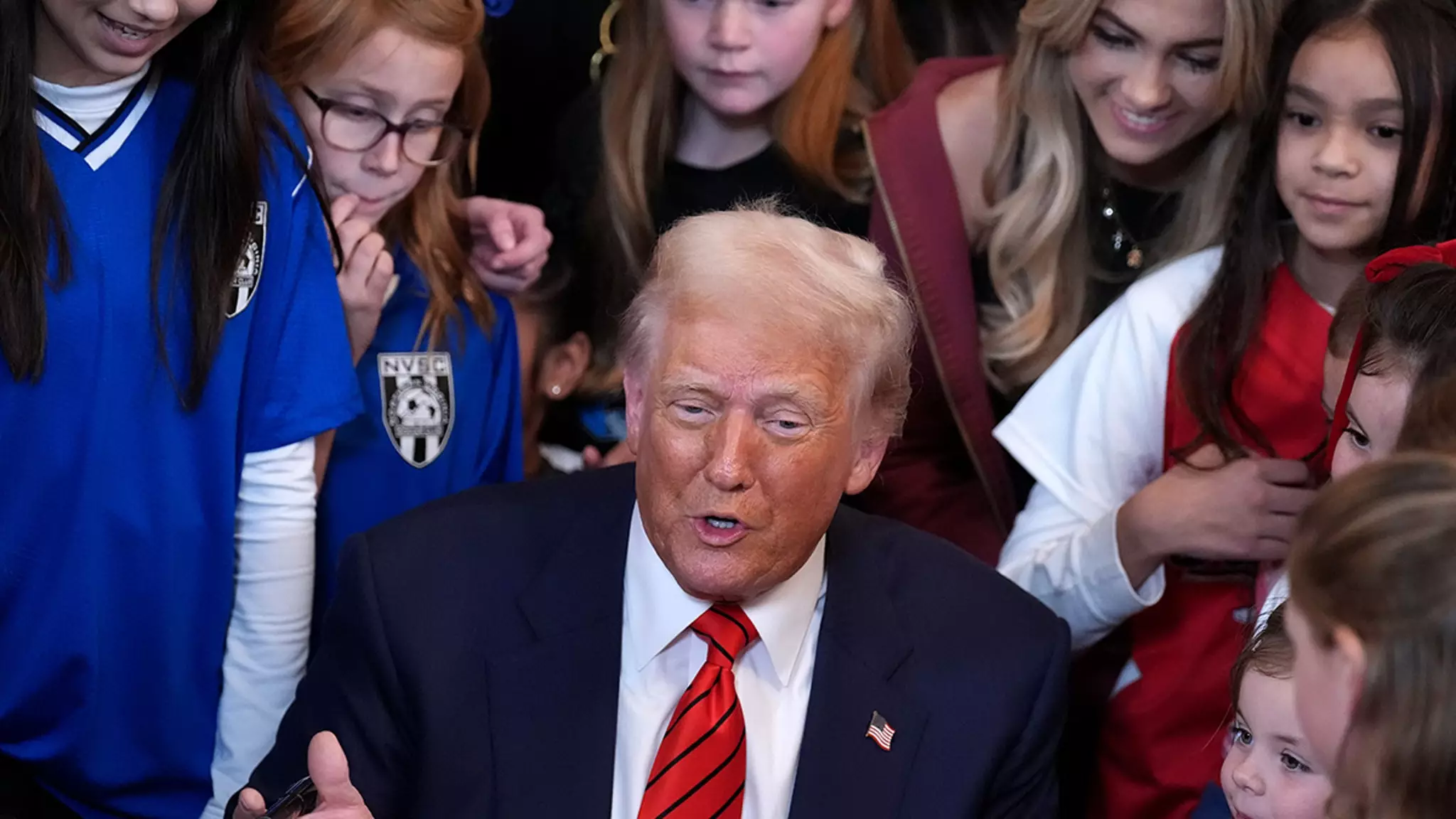In a bold move that has set the stage for a national debate, former President Donald Trump recently signed an executive order aiming to restrict transgender women from competing in women’s sports. Claimed under the banner of safeguarding female athletes, this initiative has ignited fervent discussions on the intersection of gender identity, sportsmanship, and equality. While proponents celebrate what they view as an affirmation of women’s rights, critics warn that the action could foster discrimination and hinder inclusivity in athletics.
During a ceremony characterized by enthusiastic applause from supporters, Trump outlined the core mechanisms of the “Keeping Men Out of Women’s Sports” mandate. This legislation reportedly empowers the Department of Education to withhold federal funding from educational institutions that permit transgender participation in women’s sporting events. Such a policy raises critical questions regarding the ethical implications of categorizing athletes based on gender identity and the potential consequences for schools that strive to promote diversity and acceptance.
Trump’s ambitious vision extends beyond educational institutions to the realm of professional sports, specifically targeting the upcoming 2028 Los Angeles Olympic Games. He directed Homeland Security Secretary Kristi Noem to scrutinize Visa applications from individuals identifying as women athletes. This push indicates a precedence defined by an oversimplified view of gender dynamics, where identity is conflated with intent, potentially leading to unjust stigmatization of talented athletes.
The signing ceremony drew an audience that largely resonated with Trump’s message, featuring figures like Riley Gaines, a vocal opponent of trans athletes in women’s categories. The response was a complex tapestry of approval and discontent, with diverse stakeholders weighing in. The Human Rights Campaign’s President Kelley Robinson articulated substantial concerns, emphasizing the potential negative impact on young athletes who may face discrimination and alienation as a result of such policies. Robinson’s assertion that “participating in sports is about learning the values of teamwork” underscores a broader sentiment that sports should be an avenue for unity rather than division.
Trump’s executive order is emblematic of a larger societal conflict involving the rights of transgender individuals versus the perceived need to preserve the integrity of women’s sports. Advocates for the rights of transgender athletes assert that inclusion is essential in fostering an equitable environment, while detractors argue about advantages perceived to emanate from biological differences. This dichotomy complicates the conversation about fairness and equity in sports, inviting broader questions about the future of gender classifications in athletic competitions.
As discussions surrounding this executive order unfold, the response will likely shape the landscape of gender and sports for years to come. The implementation of policies like Trump’s invites further scrutiny and discourse around the principles of fairness, equality, and respect for all athletes. Navigating these complex issues will require collective engagement, thoughtful consideration, and a commitment to upholding the values of inclusivity and support that define the sporting world. The path forward remains uncertain, but it is crucial to ensure that every athlete feels valued, regardless of gender identity.

